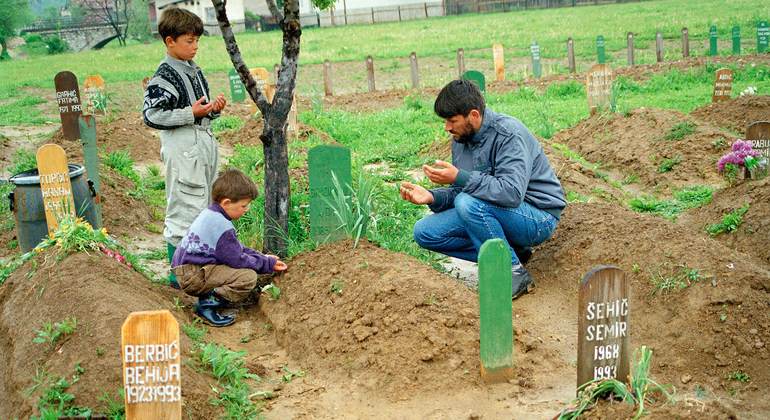In paying tribute to the thousands of mainly Muslim men and boys brutally murdered in the July 1995 massacre during the Balkan wars, António Guterres pledged that they will never be forgotten.
“A quarter century ago, the United Nations and the international community failed the people of Srebrenica. As former Secretary-General Kofi Annan said, this failure will ‘haunt our history forever’”, he stated.
“Confronting that past is a vital step towards rebuilding trust.”
Counter hate, mistrust and fear
Reconciliation, he said, must be underpinned by mutual empathy and understanding. It also means rejecting denial of genocide and war crimes, as well as efforts to glorify convicted war criminals.
The Secretary-General called on people in the region and beyond to counter hate speech, divisive rhetoric, and narratives of mistrust and fear.
“On this somber anniversary, we are reminded that peace in Bosnia and Herzegovina is still fragile”, he said.
“We cannot let up in working towards genuine reconciliation. We owe this to the victims of the Srebrenica genocide, the survivors, the people of Bosnia and Herzegovina, and to all humanity.”
Honour the victims
UN independent human rights experts have echoed the Secretary-General’s message.
They urged governments to honour the victims of the Srebrenica genocide by building peaceful, inclusive and just societies to prevent such atrocities from happening again.
“Genocides are not spontaneous. They are the culmination of unchallenged and unchecked intolerance, discrimination and violence. They are the result of sanctioned hatred, fostered in permissive environments where individuals first spread fear, then hatred for material or political gain, fracturing the pillars of trust and tolerance between communities and resulting in devastation for all”, the experts said in a statement.
The Srebrenica genocide anniversary is also an opportunity to remember other communities that have been subjected to mass atrocities based on their identity, and the experts called on the international community to take urgent action to “fend off the virus of hate and discrimination”, including online.
The 19 experts who signed the statement were appointed by the UN Human Rights Council to monitor specific country situations or themes.
They are not UN staff members, nor are they paid by the Organization.







